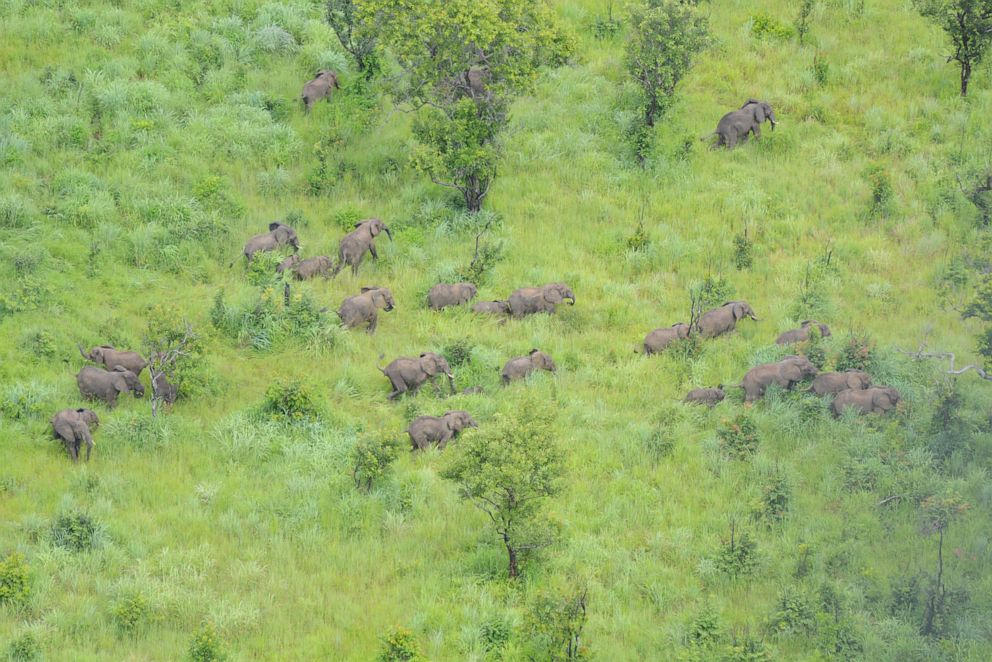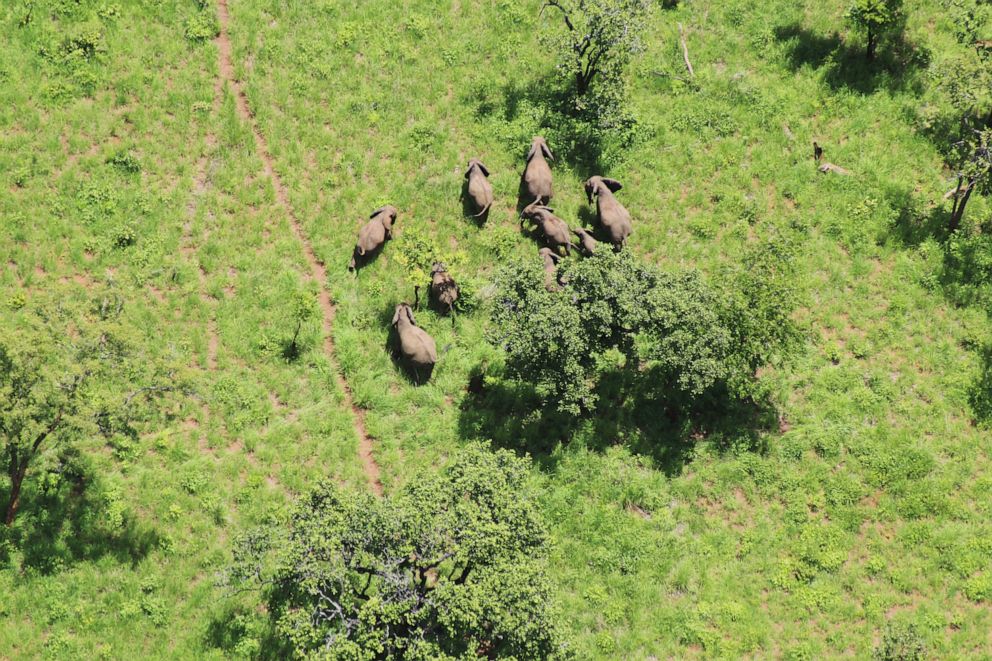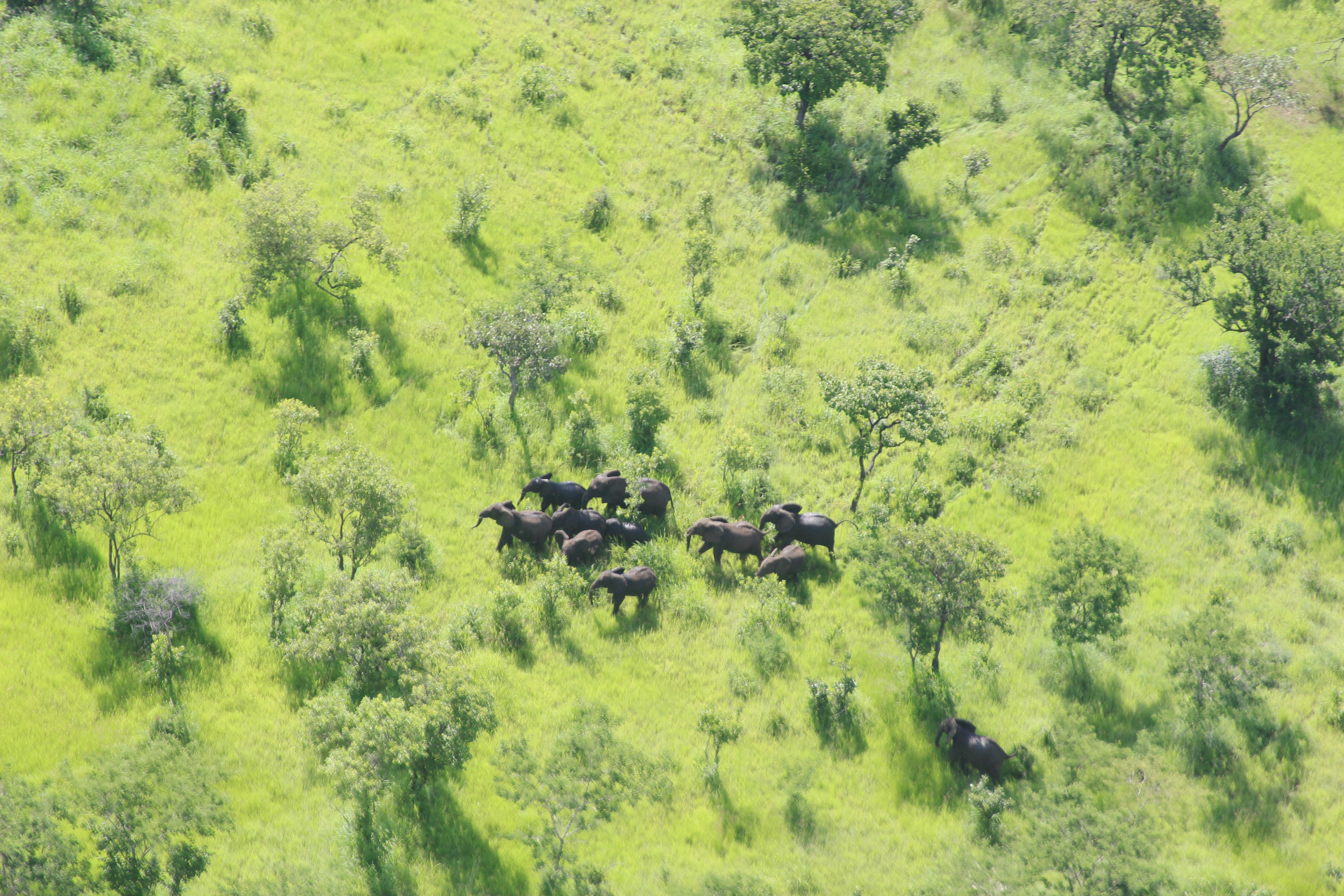'Catastrophic' elephant poaching at Niassa Reserve in Africa reduced to zero, conservationists say
The last illegally killed elephant in Niassa Reserve was reported May 17, 2018.
LONDON -- One of Africa's largest protected wilderness areas has marked an entire year without finding a single elephant killed by poachers.
The last time an elephant was recorded killed by a poacher in Mozambique's Niassa Reserve was May 17, 2018, according to the Wildlife Conservation Society, a New York-based nonprofit that helps the Mozambican government manage the national reserve.
“The success in Niassa shows that given the political will and proper funding, we can stop the poaching of elephants," James Bampton, the Wildlife Conservation Society's country director in Mozambique, told ABC News in a statement Tuesday.

The Niassa Reserve spans over 16,000 square miles -- which is larger than Switzerland -- in a remote part of northern Mozambique. The park suffered "nearly catastrophic elephant poaching" in recent years, the Wildlife Conservation Society said, which cut the population from around 12,000 to 3,675 in 2016, according to an aerial survey.
Efforts to stop rampant organized poaching from 2015 to 2017 reduced the number of illegal killings to about 100 elephants a year, but the conservation group said the rate was still "far too high."
Early last year, the Wildlife Conservation Society, the Mozambican government and other partners on the ground in the Niassa Reserve launched a coordinated anti-poaching strategy, which includes deploying a new rapid intervention police force, an increased aviation program providing surveillance and the year-round deployment of a helicopter and Cessna aircraft, and tough new sentencing of poachers.

The new strategy cleared -- and kept clear -- illegal mining and finishing in the Niassa Reserve. Meanwhile, the park saw an 87 percent decrease in the number of illegally killed elephants in 2018 compared to the previous year, according to the conservation group.
"These actions are acting as a deterrent to many would-be poachers," Bampton told ABC News, noting that political will in Mozambique as well as outside investment and partners were all key to the success.
"Without such partnerships, this would not have been possible," he added.

African elephants are considered "vulnerable" to extinction on the International Union for Conservation of Nature's Red List of Threatened Species.
Southern Africa holds by far the largest number of elephants on the continent, and the recent upsurge in elephant poaching has severely affected populations in Mozambique, according to a 2016 report by the IUCN Species Survival Commission.
The Niassa Reserve is home to some of Mozambique's most robust populations of wildlife, including elephant, lion, leopard, wild dog, sables, kudu, wildebeest and zebra.
"Niassa is an important elephant stronghold," Bampton said, "and we need to sustain protection so that their numbers can bounce back.”



